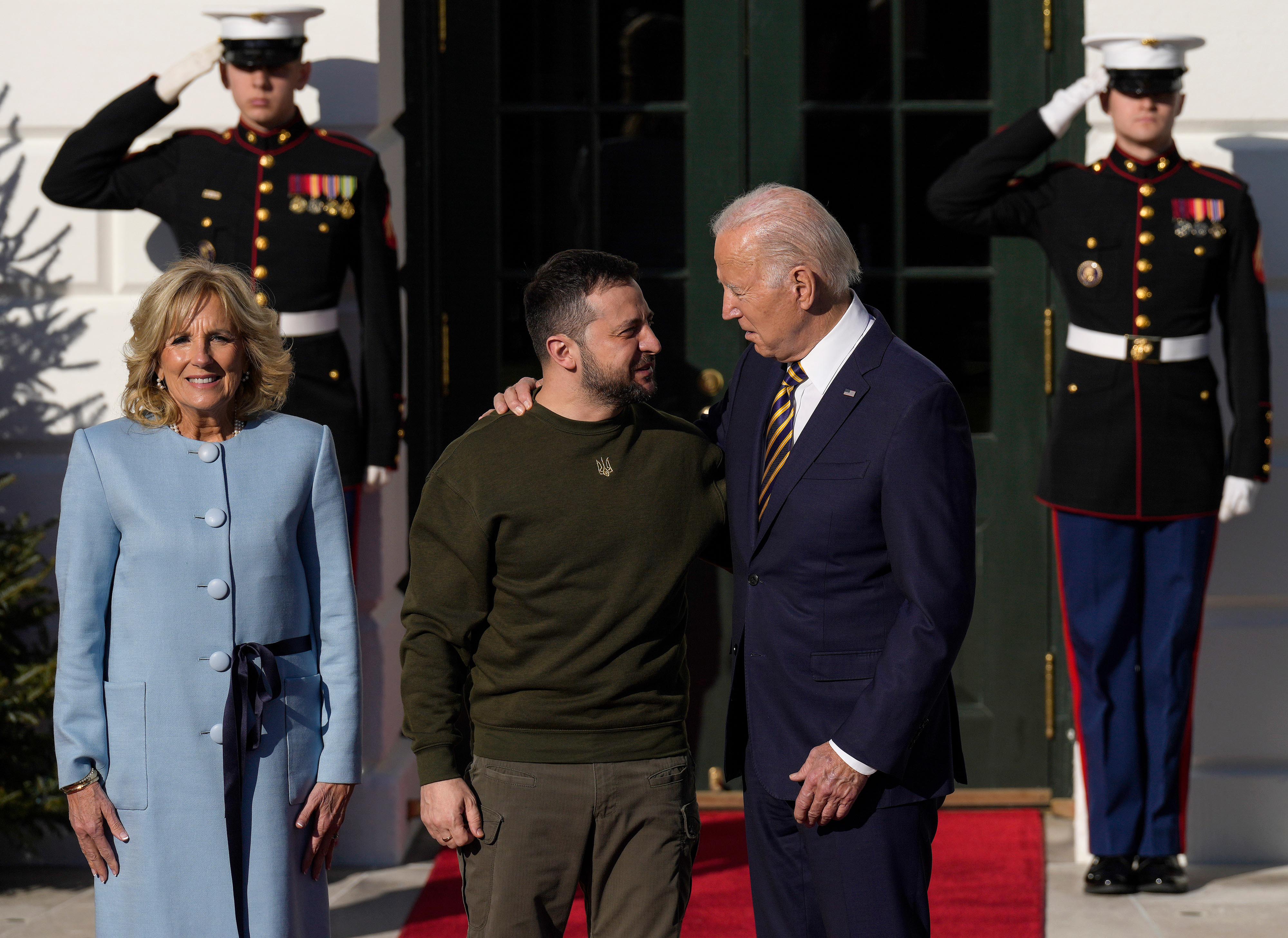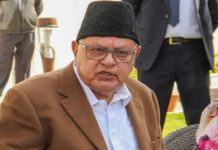
The peace proposal spelt out by Zelenskyy during his telephonic talk with Modi on December 26 doesn’t find favour with India as Ukraine’s olive branch lacks full commitments for peaceful resolution to the conflict
The peace overtures from the Ukrainian President, Zelenskyy, are being considered inadequate in New Delhi. He spoke to the Indian PM, Narendra Modi, on December 26 seeking his initiative, if not intervention, for restoring peace for ending the 10-month old conflict between Ukraine and its estranged neighbour, Russia. The reluctance of India can be traced to the peace proposal spelt out by Ukraine following deep consultations between Zelenskyy and his mentors in the White House. His 10-point peace proposals were first leaked in the Western press, later in some amended form were spelt out during the G-20 summit held in November at Bali in Indonesia, and again repeated recently, when he had telephonic conversation with Modi.
The terms of the document are unlikely to be accepted by the Russians, thus the peace remains elusive even with the dawn of 2023.
Modi has reiterated that the cessation of hostilities must end immediately, but the mandarins at the South Block, the headquarters of India’s foreign ministry, are cautious while taking any substantial diplomatic initiative for peace in this unnecessary conflict. With the Russians promptly rejecting the proposal, the possibility of any early peace in the region continues to be elusive.
G-20 and Peace
India is cautious that during her leadership of the G-20 during 2023, the organization should genuinely work for peace and prosperity. She has communicated to the membership that India is averse to the use of the organization as a platform for maligning Russia. It is believed that she expects that the major European powers, both UK and Germany, must seek the clearance from the White House before asking her to embark upon for a peace offensive.
Among India’s policy makers, there is an apprehension that instead of using India’s goodwill among the G-20, Zelenskyy might just use this forum for ‘maligning’ Russia; and it could be a good strategy for obtaining more funds and weapons from the developed western powers, but it might not be able to usher in peace in the Eastern European conflict.
Unless, Ukraine immediately agrees for ceasefire, it’s peace proposal will not lead to any peace process, but may intensify blame game in this ongoing fratricide, and it may also not help in camouflaging the world opinion. For the most of the strategic affairs specialists, the Russia-Ukraine War is just a ‘proxy war’ between America and Russia.
Seeking Putin’s Surrender
For many the ‘peace proposal’ is an attempt to get ‘signed surrender documents’ from the Russian President, Vladimir Putin. In spite of the claims of the Western media claiming the war is lost for the Russians, it appears that the Russians are being inspired by Tolstoy’s observation that “the strongest of all warriors are those who adhere to the two key elements: Time and Patience.” The Ukrainian friends in NATO are facing bitter winters, that too without Russian gas. It is being asked that how long they would be trumpeting the small successes of the Ukrainian forces though they have suffered huge losses in the Kharkiv region and a substantial part of Kherson.
The peace deal offered to Russia resembles an ultimatum. In spite of the liberal flow of armaments and funds from the West, there is the ‘winter of discontent’ looming in Europe. It is also being stressed that the Russians have lost the stomach for the war, but it is difficult to accept it. Earlier, the peace proposal, which has reportedly been drawn up by some think tanks of western countries, especially the USA, could not initiate any meaningful negotiations for peace. Meanwhile, President Joe Biden’s security spokesman, John Kirby’s adverse comment against the Russian President, Vladimir Putin, does not appear to be encouraging for any peace initiative. Kirby’s scepticism about end of the war was reaffirmed, when he stated, “Putin has shown absolutely zero indication that he is willing to negotiate for ending the war.”
The Humiliating Dimensions
The proposed initiative for peace talks about a complete cessation of hostilities and the withdrawal of Russian troops from the Ukraine (to include Donetsk and Luhansk). The thorny question of Ukraine’s proposed entry into NATO would be postponed for next seven years. It would be taken up after this interval. A ‘security zone’ of 100-km wide would be running along the international borders of Russia, Ukraine and Belarus. It would be policed by six Western countries. Crimea will become a neutral area and the Russian navy would leave the Black Sea. This would be renegotiated after seven years. Russian speaking people and families will be given immunity from prosecution. Many strategic affairs specialists are bemused by the claim of some western experts that the peace deal is a better proposal than the Versailles or Nuremburg. It may be recalled that the Treaty of Versailles was a peace document signed at the end of World War I by the Allied and associated powers with Germany in the Palace of Versailles, France, on June 28, 1919. Earlier, the peace accord at Nuremberg in 1649 had ended the 30-year war (1618 -1648) in Europe.
It is being stated that the peace proposal needs an all inclusive document. In its present form will mean a certain defeat and humiliation for Putin. However, it goes to the credit of the Indian policy makers that they have so far successfully refused to endorse the Western media, which presumes Putin is out of chips. On the other hand, the Russians are not suffering from a lack of gas supplies. The reality is that the woes of the West, which is facing unprecedented recession perhaps for the first time after WW-II years, are compounded by economic and social unrest faced by these countries.
It appears that it could be an attempt to woo the Russian elites, who have already suffered huge financial losses due to the Western sanctions. Also, the proposal may be an escape route and immunity from prosecution at Hague, if ever the war trials begin.
Meanwhile, Putin has to all extent and purposes rejected the ‘peace deal’ with the continued bombing of Ukrainian infrastructure. Perhaps it is intended to force a better deal; we are at a standoff with the Ukraine pushing for a continuation of the fight. At this historical juncture, the US-led western powers do not have a Henry Kissinger to resolve this conflict through diplomacy.
It may be a little embarrassing to ask Zelenskyy to shed off his past in the show business. He could be an excellent stage artist or comedian, but many Indians believe that he is being used by the Western powers, the military-industrial establishment, for serving their strategic interests against Russia. He knows how to use media or any international forum with optimum visual impact, but he is dealing with the lives of millions of people. He has to use his own strategy for peace instead of depending upon the Western media, and might find India as a strong ally for peace. PM Modi has been “strongly reiterating for an immediate cessation of hostilities, and has been asking that both sides should revert to dialogue and diplomacy to find a lasting solution”













